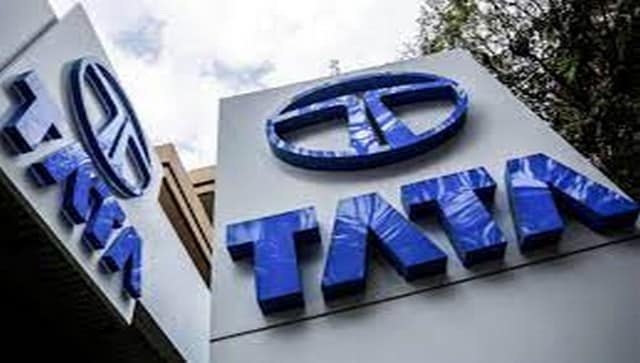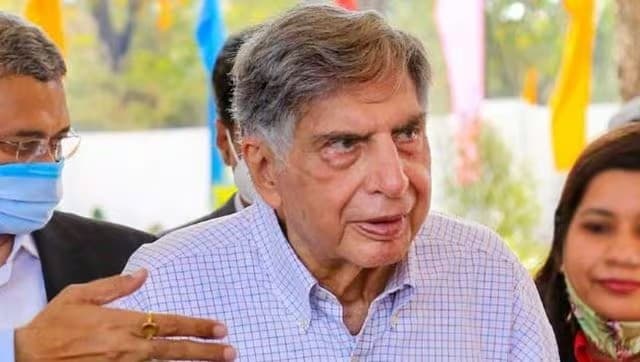Tata Motors has won a major victory in court against the West Bengal government. A tribunal in West Bengal has awarded the company Rs 766 crore, along with interest, in the Singur plant case. The company, making the announcement on Monday in a regulatory filing, said arbitration proceedings have now ended. The TMC government, meanwhile, has insisted that this is not the “final verdict” and that it still has legal avenues to pursue. But what is the Singur plant case? And how did it lead to the rise of Mamata Banerjee? Let’s take a closer look: The Singur plant First, let’s take a brief look at the Singur plant. In May 2006, then Tata Group chairman Rata Tata announced the Tata Nano project – his ‘dream car’. The Nano, priced at Rs 1 lakh, would be the world’s cheapest car. “The first batch of cars, to be allotted by lottery, would be price-protected," Tata vowed, as per The Telegraph. Tata’s announcement came on the same day that then West Bengal chief minister Buddhadeb Bhattacharjee of the Left Front returned to power. The Left Front, powered by Bhattacharjee, was laser-focussed on industralisation. The state government declared that it would give Tata the nearly 1,000 acres of project land needed for the plant by the end of 2006.
The place where Tata would construct their plant? Singur.
The company, in turn, vowed to roll out its first Nano by 2008. [caption id=“attachment_13323732” align=“alignnone” width=“640”] In May 2006, then Tata Group chairman Rata Tata announced the Tata Nano project – his ‘dream car’.[/caption] The announcement of the project was viewed as a ‘sea-change’ for Bengal – which long had the tag of being unfriendly to big business. While the Tatas nearly decided to put up their plant elsewhere, they were lured in by the state government. The rise of Mamata But all was not well in West Bengal. Just days later, farmers took to the streets in protest. The cultivators claimed their land was “forcibly acquired” for the Singur plant. As per The Print, the then state government picked up land for the plant by converting agricultural plots into industrial property. Though 11,000 farmers agreed to part with their land, another 3,000 refused to do so.
In May 2006, then Tata Group chairman Rata Tata announced the Tata Nano project – his ‘dream car’.[/caption] The announcement of the project was viewed as a ‘sea-change’ for Bengal – which long had the tag of being unfriendly to big business. While the Tatas nearly decided to put up their plant elsewhere, they were lured in by the state government. The rise of Mamata But all was not well in West Bengal. Just days later, farmers took to the streets in protest. The cultivators claimed their land was “forcibly acquired” for the Singur plant. As per The Print, the then state government picked up land for the plant by converting agricultural plots into industrial property. Though 11,000 farmers agreed to part with their land, another 3,000 refused to do so.
Then came the political earthquake.
Politics in West Bengal in 2008 had seen the Left Front return to power with a supermajority. The Left, which took 235 seats in the 294-member Assembly, left the Opposition with a tiny minority. The Front also held sway in subsequent bypolls to a few Lok Sabha and Assembly seats. The Trinamool Congress, led by Mamata Banerjee, was in the Opposition. The TMC just barely managed to attain the status of Opposition in the Assembly with 30 seats. The TMC saw an opportunity to pounce on the issue – and pounce it did. When TMC chief Mamata Banerjee was stepped from going to Singur to protest the land acquisition, all hell broke loose in the state Assembly. The TMC members broke furniture and in an unedifying sight even traded blows with members of the CPI-M. Banerjee, who finally managed to get to Singur, sowed paddy near the site of the plant in a symbolic protest against the acquisition of land. Social activist Medha Patkar threw in with Mamata against the acquisition of farmland. Meanwhile, in a case of politics making for strange bedfellows. the BJP backed the Trinamool Congress – forcing the Congress to distance itself from the party. The state government, however, remained unmoved. It insisted that the project would give a huge boost to development. After the state completed its acquisition of the farmland, Banerjee announced she would go on an indefinite hunger strike in December 2006. Banerjee, who remained on hunger strike for weeks, called it off only after pleas from then president APJ. Abdul Kalam and prime minister Manmohan Singh. But Singur had already propelled Mamata to the national spotlight. By mid-2007, the company and the government had already signed a deal to lease out the land – even as the Trinamool and farmers kept protesting against the plant. The plant required an upfront investment from Tata of nearly Rs 1,000 crore. In 2008, Bhattacharjee, in a sign of the heat being turned up, invited Banerjee for talks over the issue. By now, several of the protests had turned violent. A perturbed Ratan Tata in September 2008 announced that the plant would be relocated from Singur if the violence continued. When the violent protests refused to die down, the company officially suspended work at the Singur plant. It announced it was exploring alternative sites. [caption id=“attachment_13323742” align=“alignnone” width=“640”] Ratan Tata had warned that the project would be relocated if violence persisted.[/caption] Meanwhile, Governor Gopal Krishna Gandhi had agreed to mediate between the government and the Opposition. A meeting in Raj Bhavan resulted in the West Bengal government announcing an improved compensation package for those that lost their land for the Singur plant. However, in October, the Tata Group announced that the Nano project would shift from West Bengal to Gujarat’s Sanand. The company made the move after surveying many sites including in Karnataka and Andhra Pradesh. The announcement was jointly made by Tata and then Gujarat chief minister Narendra Modi. Back in West Bengal, the Singur saga had transformed Banerjee into the tallest leader of the state. In 2011, she was sworn in Chief Minister of West Bengal. Her new cabinet in its very first meeting decided to return 400 acres of land to farmers. Legal manouverings In June 2011, the Mamata government via means of ordinance reclaimed 997 acres of land from Tata. The government cited the group’s ‘non-performance’ as a reason. The West Bengal Assembly then passed the Singur Land Rehabilitation and Development Act to reclaim 400 acres of land.
Ratan Tata had warned that the project would be relocated if violence persisted.[/caption] Meanwhile, Governor Gopal Krishna Gandhi had agreed to mediate between the government and the Opposition. A meeting in Raj Bhavan resulted in the West Bengal government announcing an improved compensation package for those that lost their land for the Singur plant. However, in October, the Tata Group announced that the Nano project would shift from West Bengal to Gujarat’s Sanand. The company made the move after surveying many sites including in Karnataka and Andhra Pradesh. The announcement was jointly made by Tata and then Gujarat chief minister Narendra Modi. Back in West Bengal, the Singur saga had transformed Banerjee into the tallest leader of the state. In 2011, she was sworn in Chief Minister of West Bengal. Her new cabinet in its very first meeting decided to return 400 acres of land to farmers. Legal manouverings In June 2011, the Mamata government via means of ordinance reclaimed 997 acres of land from Tata. The government cited the group’s ‘non-performance’ as a reason. The West Bengal Assembly then passed the Singur Land Rehabilitation and Development Act to reclaim 400 acres of land.
Tata now moved the Calcutta High Court seeking ex-parte relief on the Singur land.
The Supreme Court then ordered West Bengal to stop distributing land until further notice. The Calcutta High Court upheld. the Singur Land Rehabilitation and Development Act, 2011 Tata Motors then challenged Calcutta High Court order before division bench. A Calcutta High Court division bench ruled that the Singur Land Rehabilitation and Development Act, 2011 was unconstitutional and void. The West Bengal government challenged the Calcutta High Court order in the Supreme Court. In 2016, the Supreme Court in a victory for the Mamata government set aside the acquisition of land for Tata Nano project in Singur. It also ordered the state government to return land to all within 12 weeks. As per The Print, the farmers were returned their land a decade after the protest first began. But in a sad twist, the farmers who received their land back in Singur are now looking for fresh buyers. [caption id=“attachment_13323762” align=“alignnone” width=“640”] By 2016, the farmers of Singur had their land returned to them.[/caption] This comes as a resulted of the soil in Singur being of poor quality, leftovers from Tata plant remaining and the price of land rising nearly 10-fold thanks to the Durgapur Expressway, as per the outlet. What about this case? As per Indian Express, this case is about a clause in the 2007 land lease agreement signed between Tata and the West Bengal Industrial Development Corporation (WBIDC),
By 2016, the farmers of Singur had their land returned to them.[/caption] This comes as a resulted of the soil in Singur being of poor quality, leftovers from Tata plant remaining and the price of land rising nearly 10-fold thanks to the Durgapur Expressway, as per the outlet. What about this case? As per Indian Express, this case is about a clause in the 2007 land lease agreement signed between Tata and the West Bengal Industrial Development Corporation (WBIDC),
The company had in the deal indemnified itself from any monetary losses as a result of an imperfect title of the land.
“According to our estimate, the total money we had spent in Singur — from land acquisition till the point we left — was around Rs 1,400 crore. Of this, approximately Rs 154 crore was paid to the state government for buying the land after it was acquired,” an official told the newspaper on condition of anonymity. While Tata Motors had demanded that Rs 154 crore back as compensation from the West Bengal government, the Mamata dispensation instead offered land for the company to set up industry. Tata at the time saw the government’s offer as a ‘positive move’ and a ‘step in the right direction’, as per Indian Express. Mamata, unsurprisingly, remains defiant about the ultimate outcome. In November, she was quoted by Hindustan Times as saying: “They acquired land forcibly, I returned it to unwilling owners.” “Some people are saying nonsense that I drove out Tatas. Now, Tata is giving jobs. It was the CPM. They had claimed the land by force. We gave back the land… We don’t discriminate against any industrialist,” Banerjee added. ‘Arbitration at an end’ In a regulatory filing on Monday, the auto major said a three-member Arbitral Tribunal has ruled that the company is entitled to recover from the respondent West Bengal Industrial Development Corporation Ltd (WBIDC) a sum of Rs 765.78 crore with interest thereon 11 per cent per annum from September 1, 2016, till actual recovery thereof. The compensation is in respect to the auto major’s claim of compensation from WBIDC under various heads, including the loss of capital investments with regard to the automobile manufacturing facility at Singur. “This is to inform that the aforesaid pending Arbitral proceedings before a three-member Arbitral Tribunal has now been finally disposed of by a unanimous award dated October 30, 2023, in favour of Tata Motors,” the Mumbai-based auto major said. Tata Motors has also been held to be entitled to recover from the respondent (WBIDC) a sum of Rs 1 crore towards the cost of the proceedings, it added. “With the making of the final arbitral award as mentioned above, the Arbitral proceedings have come to an end,” it added. With inputs from agencies
)